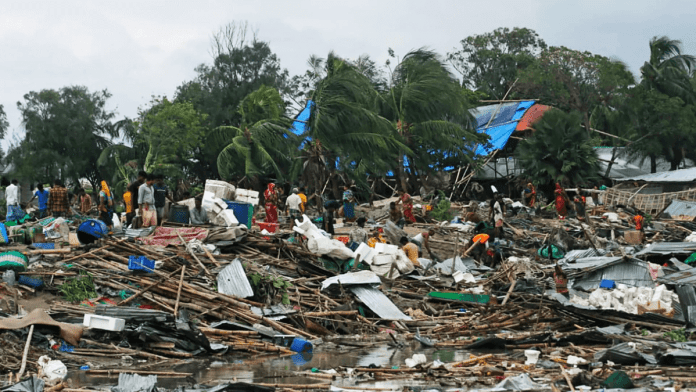News in Brief:
– Cyclone Remal caused significant damage to coastal areas of Bangladesh, affecting shrimp farmers and leading to $14.55 million in fisheries losses.
– There are growing calls for better storm defenses, government aid, and climate action to support affected communities.
The recent devastation caused by Cyclone Remal in Bangladesh highlights the urgent need for enhanced climate resilience measures in coastal regions worldwide.
The cyclone, characterised by strong gales and heavy rainfall, resulted in significant economic losses and disrupted the lives of millions, particularly those dependent on agriculture and aquaculture.
It wreaked havoc on Bangladesh’s coastal areas, causing extensive damage to agriculture and aquaculture sectors. Professor Abdullah Al-Mamun estimates that about 350,000 shrimp-farming families suffered substantial losses due to the cyclone, with fisheries alone experiencing losses of approximately 1.7 billion taka ($14.55 million).
Farmers like Ripon Chandra Das from Dacope describe how the cyclone swept away fish and shrimp ponds, undermining the livelihoods of numerous families. Many villagers had invested heavily in aquaculture infrastructure, only to see their efforts destroyed by the tidal surge.
Government intervention and compensation
The aftermath of Cyclone Remal throws light on the importance of proactive measures to mitigate the impact of extreme weather events on agriculture and aquaculture. Maksudur Rahman of Bangladesh Environment and Development Society recalled the need for better maintenance of coastal embankments and support for farmers to build higher embankments around their aquaculture sites.
Calls for government intervention and compensation for affected farmers are growing louder. Rahman highlights the inadequacy of current support systems and urges the government to prioritise assistance for smallholder farmers and aquaculturists. He advocates for the use of climate finance to fund adaptation measures, such as tree-planting programs and the restoration of mangrove forests.
To effectively address the economic losses caused by cyclones, Mamun proposes the use of artificial intelligence-powered tools to estimate damages and allocate state aid more efficiently. He stresses the importance of integrating existing data and technology to support affected communities promptly.



